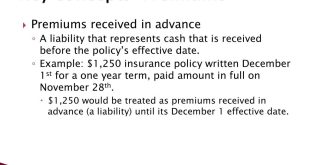Social Security Disability Insurance (SSDI) Benefits: A Comprehensive Guide
1. What is Social Security Disability Insurance (SSDI)?
Social Security Disability Insurance (SSDI) is a federal program that provides financial assistance to individuals who are unable to work due to a qualifying disability. Funded through payroll taxes, SSDI offers monthly benefits to disabled workers and, in some cases, their families.
2. Eligibility Criteria
To qualify for SSDI benefits, you must meet several key criteria:
- Work History: You must have worked and paid Social Security taxes for a sufficient number of years. The exact number of work credits required varies based on your age at the time of disability. Generally, you need to have earned 40 work credits, with 20 credits earned in the last 10 years before your disability began. Younger individuals may qualify with fewer credits.
- Disability Status: You must have a medical condition that meets Social Security’s definition of disability. This means you must have a severe impairment that prevents you from performing substantial gainful activity (SGA) and is expected to last at least 12 months or result in death.
- Inability to Work: You must be unable to perform the duties of your previous job or any other type of substantial gainful activity.
3. The Application Process
Applying for SSDI involves several steps:
- Gather Documentation: Collect necessary documents including your Social Security number, birth certificate, medical records, and details of your work history.
- Submit Your Application: You can apply online via the Social Security Administration (SSA) website, by phone, or in person at a local Social Security office.
- Wait for a Decision: The SSA will review your application, which can take several months. They may request additional medical information or consult with medical professionals to evaluate your claim.
- Receive a Decision: You will get a written notice of the SSA’s decision. If approved, you will start receiving monthly SSDI benefits. If denied, you can appeal the decision within 60 days of receiving the notice.
4. What to Do If Your Claim is Denied
If your SSDI claim is denied, you have several options:
- Request Reconsideration: If your claim is denied, you can request a review of the decision. This step is known as “reconsideration.”
- Hearing: If reconsideration is denied, you can request a hearing before an Administrative Law Judge (ALJ).
- Appeals Council: If the hearing decision is unfavorable, you can request a review from the Social Security Appeals Council.
- Federal Court: If all other appeals are exhausted, you can file a lawsuit in federal court.
5. Benefits and Payments
If approved for SSDI, you will receive:
- Monthly Cash Payments: These are based on your average lifetime earnings covered by Social Security.
- Medicare Coverage: After 24 months of receiving SSDI benefits, you become eligible for Medicare.
- Dependent Benefits: Certain family members may also qualify for benefits based on your work record, including your spouse and children.
6. Maintaining Eligibility
To maintain your SSDI benefits:
- Report Changes: You must report any changes in your condition, work status, or personal information to the SSA.
- Continuing Disability Reviews: The SSA conducts periodic reviews to ensure you still meet the disability criteria.
7. Work and SSDI
You can work while receiving SSDI benefits under specific conditions:
- Trial Work Period: You can work for up to 9 months in a rolling 60-month period without losing benefits.
- Substantial Gainful Activity (SGA): If you work and earn above a certain amount (SGA), you may lose your benefits. In 2024, the SGA amount is $1,680 per month for non-blind individuals.
8. Additional Resources
For more information or assistance, you can:
- Visit the SSA Website: Social Security Administration
- Call the SSA: 1-800-772-1213
- Visit a Local Social Security Office: Find locations on the SSA website.
9. Common Questions and Answers
Here are some frequently asked questions about SSDI benefits:
- How long does it take to get SSDI benefits? The application process can take 3 to 5 months, but it varies depending on your case and the workload of the SSA.
- Can I receive SSDI benefits if I have a part-time job? Yes, but you must not exceed the SGA limit to continue receiving benefits.
- What if I need to appeal a denied claim? You can appeal by following the steps outlined above, including requesting reconsideration or a hearing.
- Can my SSDI benefits be taxed? SSDI benefits may be taxable depending on your total income. If your combined income exceeds a certain threshold, you may need to pay taxes on your benefits.
10. Resources for Assistance
- National Organization of Social Security Claimants’ Representatives (NOSSCR): NOSSCR – A resource for finding legal representation.
- Disability Rights Advocates: Disability Rights Advocates – Offers advocacy and legal support for disabled individuals.
Conclusion
Navigating SSDI benefits can be complex, but understanding the requirements and processes can help you manage your claim more effectively. If you face challenges, don’t hesitate to seek legal advice or support from advocacy groups.



